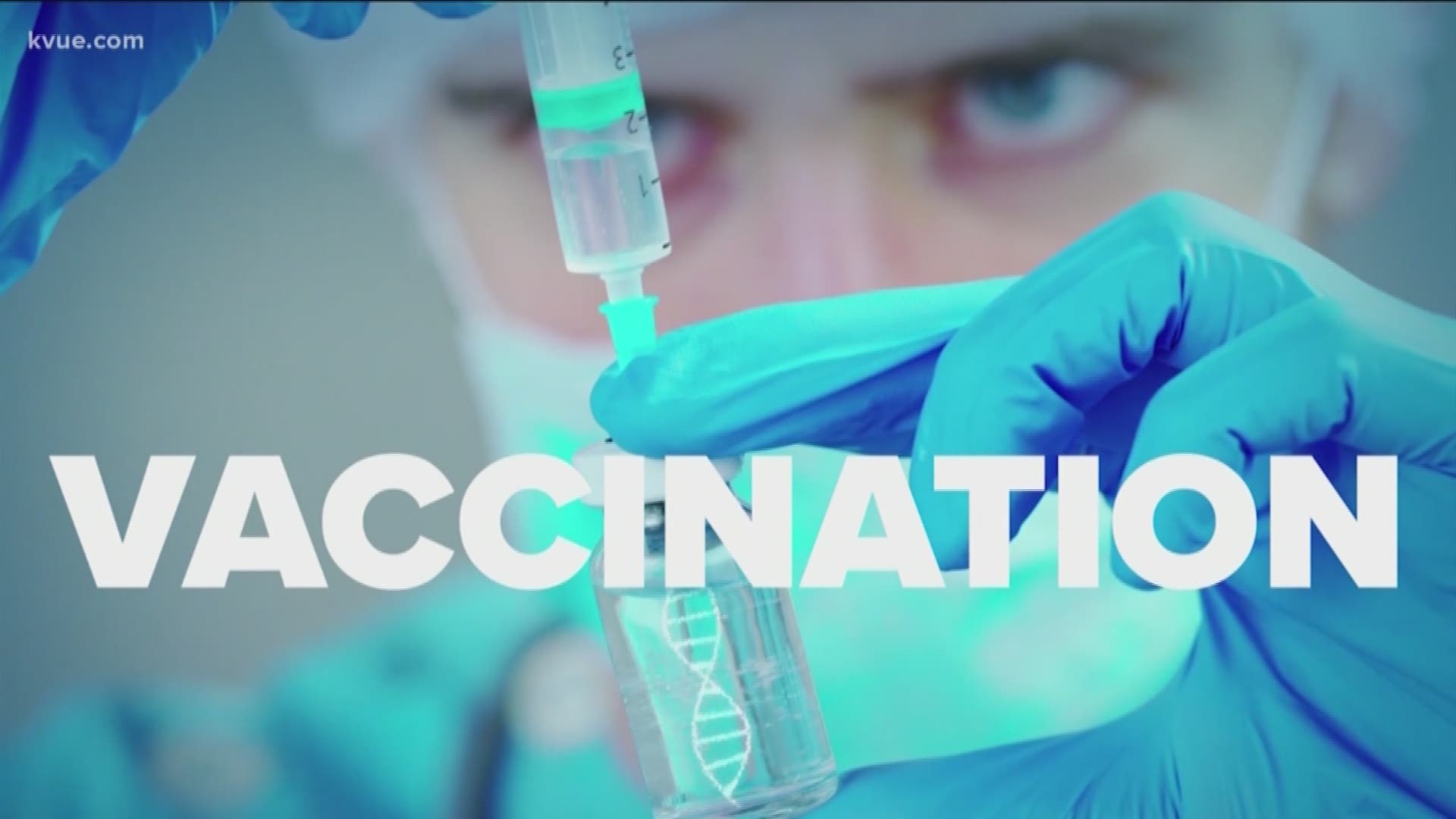AUSTIN, Texas — As the world awaits a vaccine for COVID-19, we wanted to take a look at how vaccinations are made.
Experts say that a shot will make your body's immune system better protected when you encounter a particular disease. And although it may sting a little, getting that shot of lifesaving liquid is the easiest and quickest part of the vaccine process. It took dozens of doctors and researchers years, maybe even decades, to create it.
So, what goes into making a vaccine?
The first step is to isolate the disease antigen, which causes an immune response in your body. Then the antigen is weakened before being injected. When this weakened form of the disease enters your bloodstream, it allows your immune system to activate and more easily combat the illness. Think of it like a boxing match between your body and the disease – but the disease has both its legs and arms tied, giving your body an easy knockout punch.
The next step is to add compounds that help your new disease immunity last for a longer period of time. So, instead of getting a booster shot every year, you may only need one every decade.
RELATED:
Then a series of stabilizers are added in order to prolong shelf life and allow the vaccine to be shipped all over the world.
But there are still several more steps before a vaccine makes it into your bloodstream.
Once it's been perfected in the researcher's lab, it's sent to the FDA and CDC for more rigorous testing. This process generally takes years as well, with the vaccine first tested in another lab environment and then on a group of volunteers. Even after it's deemed effective, safe and released for general use, the CDC, FDA and National Institutes of Health monitor its deployment and distribution, always on the lookout for side effects or ways to make it better.
Human immunity to disease is the culmination of thousands of years of living on Earth, as well as hundreds of years of scientific research and innovation. When years of adapting and evolving on Earth mix with the best and brightest medical minds, it's a sure-fire recipe for defeating and preventing what was once common sickness from plaguing future generations – all in the form of a shot.
CORONAVIRUS COVERAGE:
- Rising meat prices putting the heat on barbecue restaurants
- Family of Austin nursing assistant sues facility, operators
- St. Edward's University reportedly announces layoffs amid coronavirus pandemic
- LIST: Confirmed Central Texas coronavirus cases by county
- Rural Texas hospitals struggle to stay open amid COVID-19 pandemic
- Texas Conference for Women goes virtual in 2020

